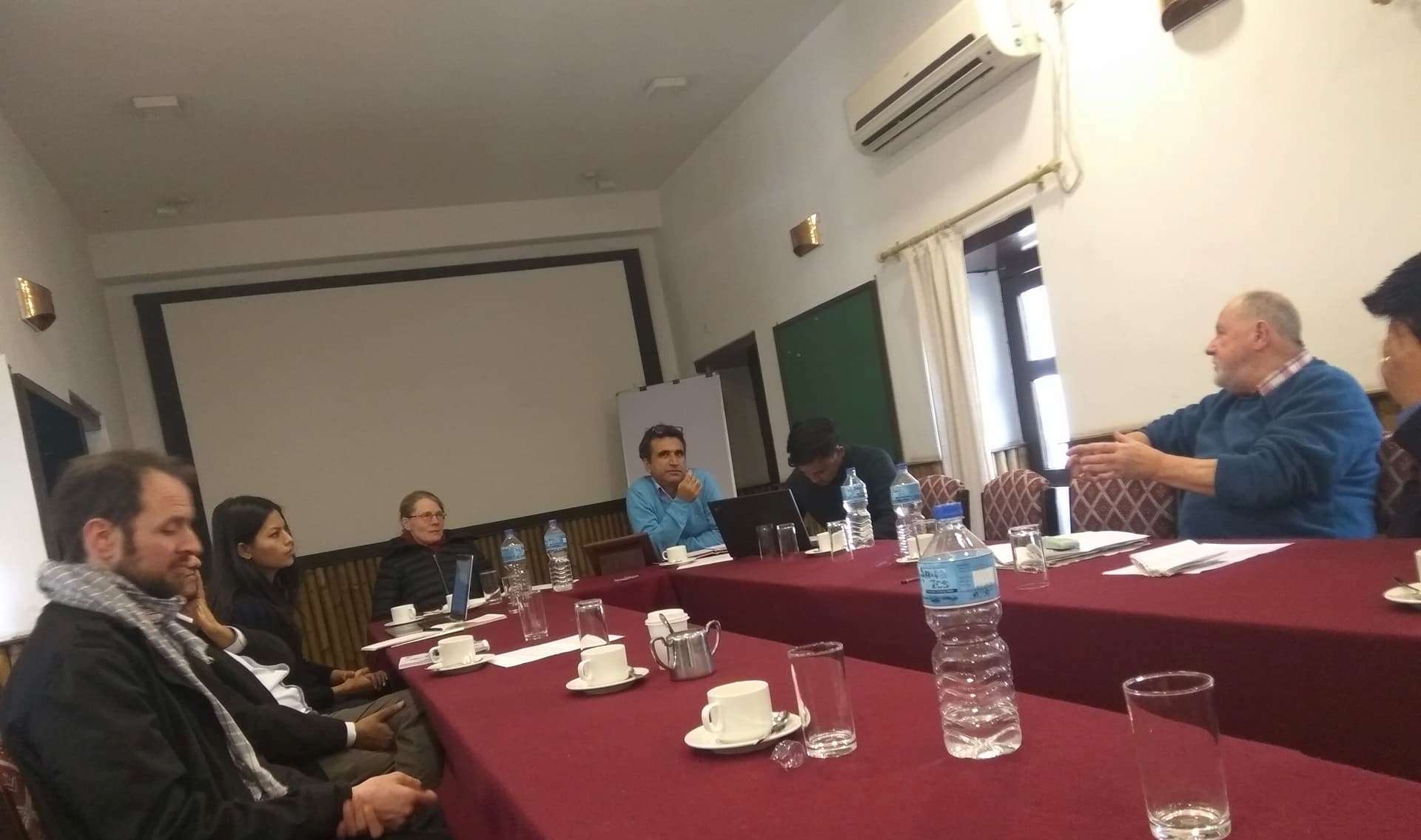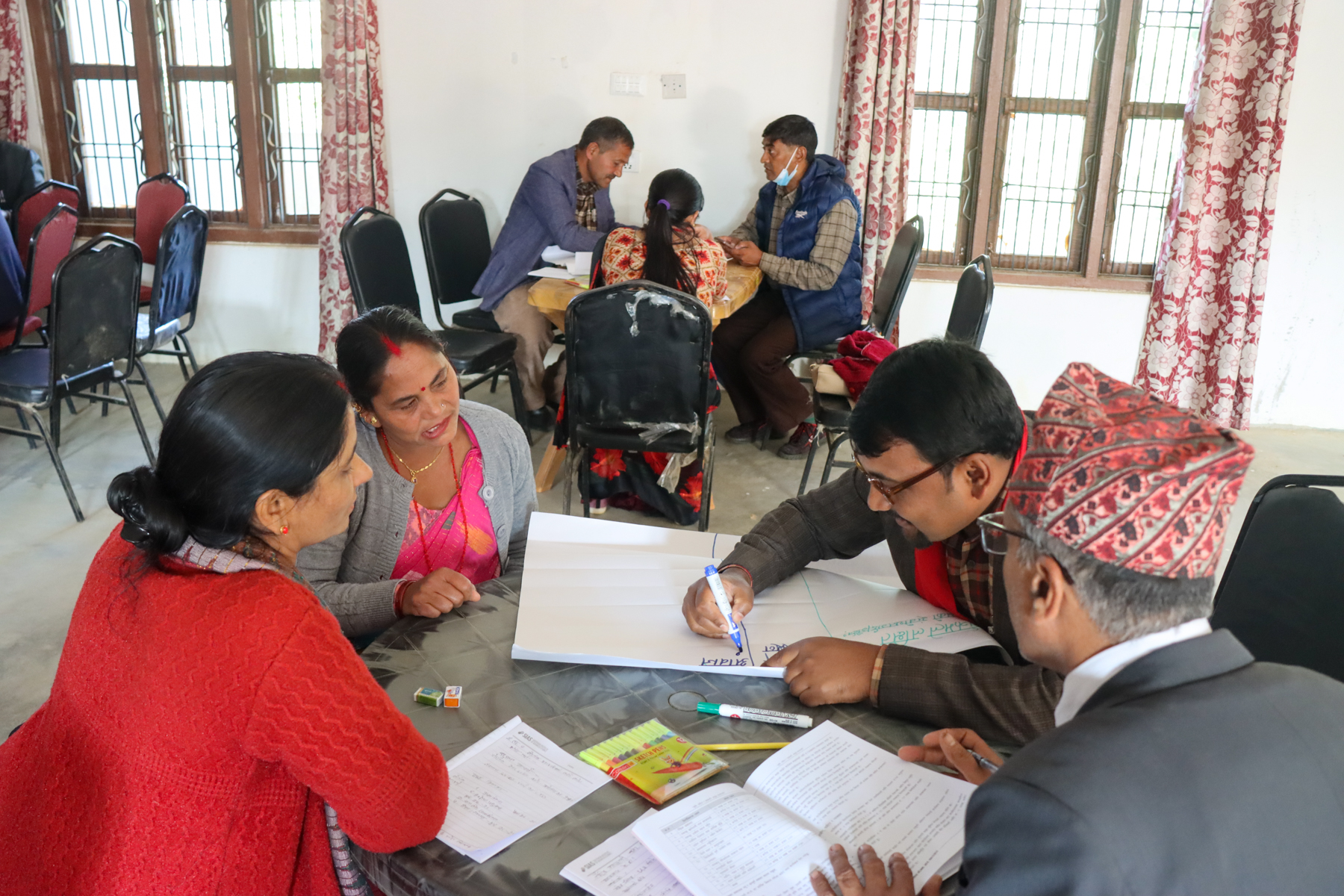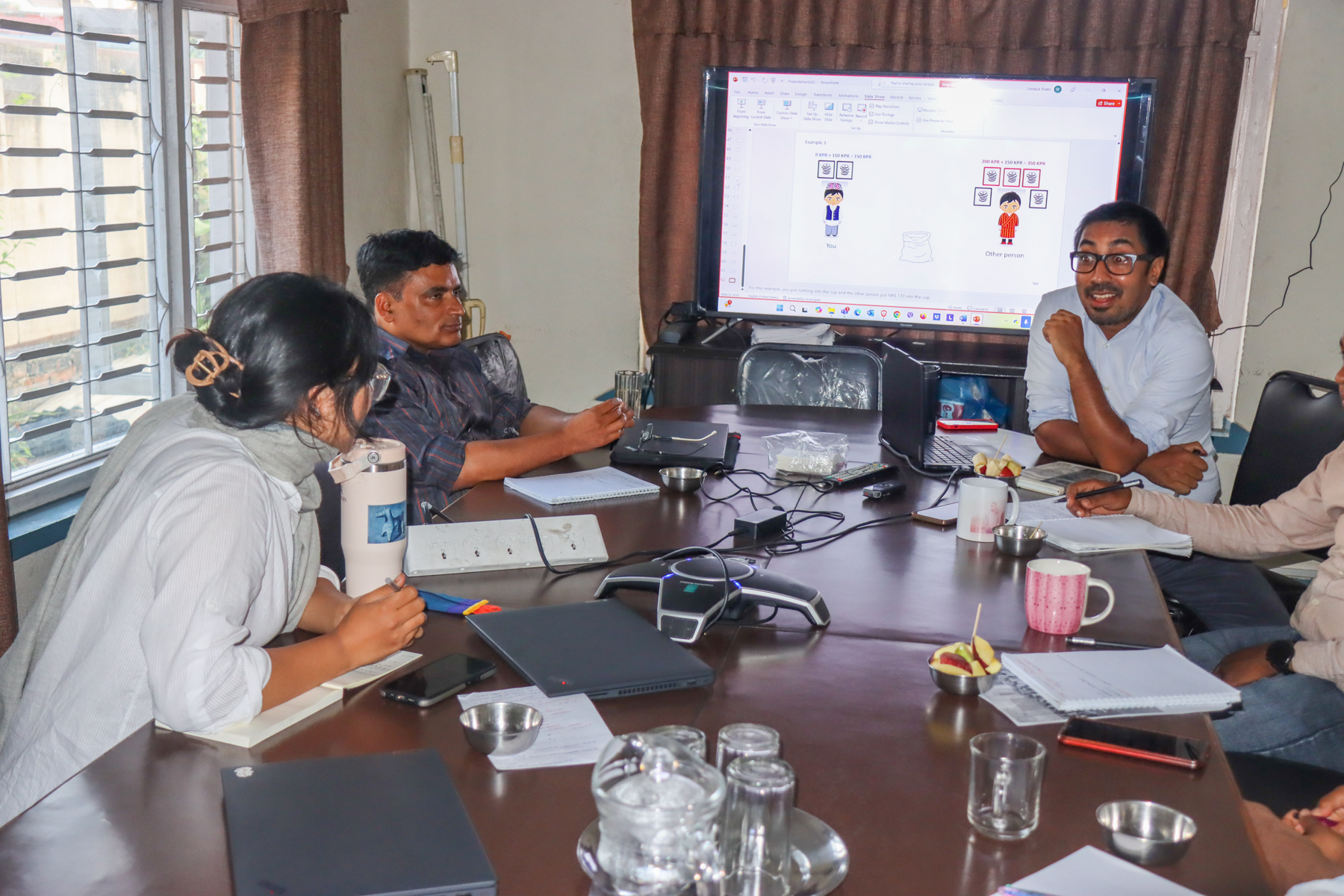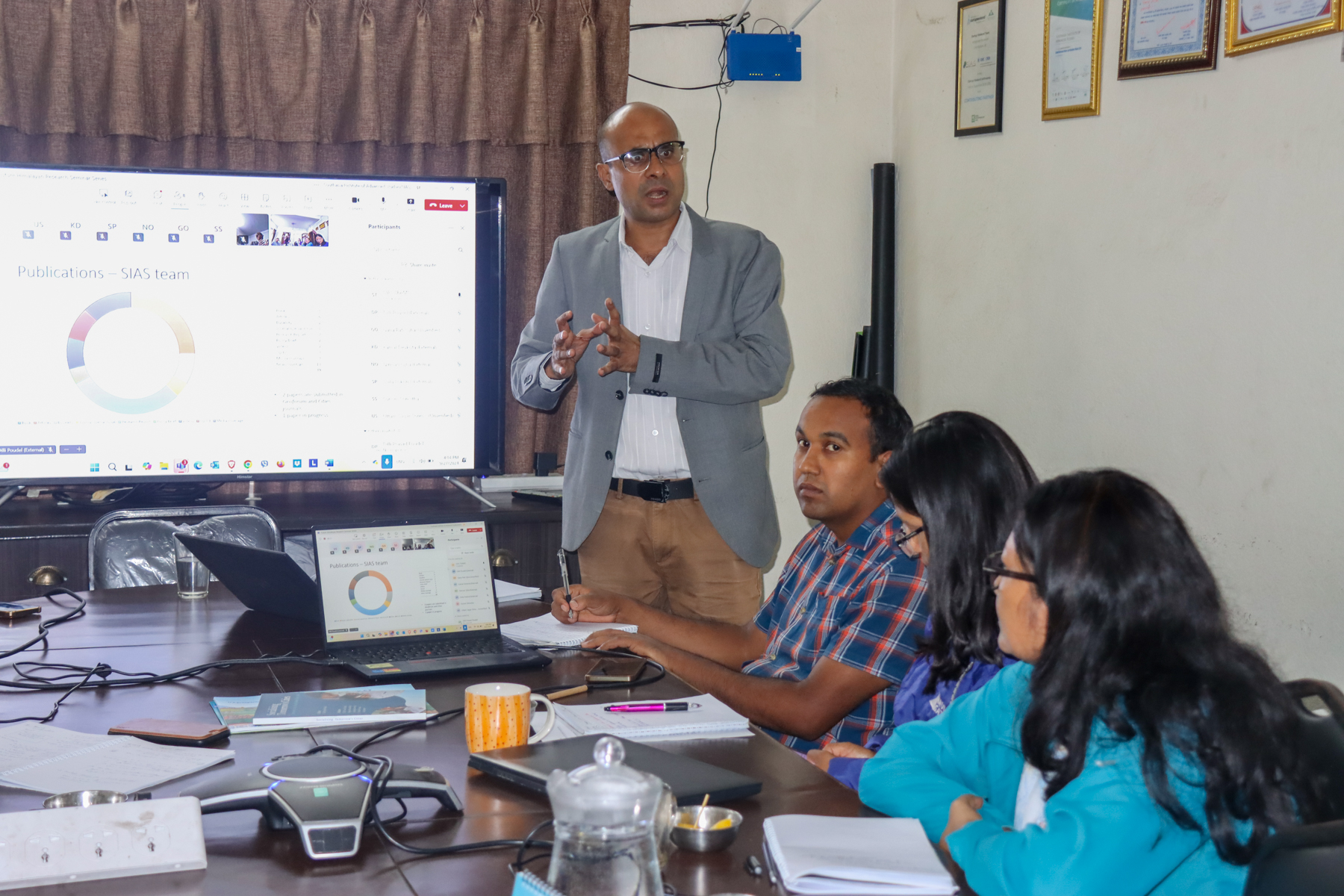 Southasia Institute of Advanced Studies (SIAS), Swedish University of Agricultural Sciences (SLU) and University of New South Wales (UNSW) are jointly organized ‘Climate Dialogue-II’ on 17th December, 2017 (9.30 am-12.30 pm) at Yala Maya Kendra, Patan Dhoka. The main objective of the dialogue was to discuss on updates of the national ongoing policy processes in climate change in relation to our ongoing project on enhancing scientific understanding of how climate change produces concerns for legitimacy, conflict and violence in the governance of forests and water resources.
Southasia Institute of Advanced Studies (SIAS), Swedish University of Agricultural Sciences (SLU) and University of New South Wales (UNSW) are jointly organized ‘Climate Dialogue-II’ on 17th December, 2017 (9.30 am-12.30 pm) at Yala Maya Kendra, Patan Dhoka. The main objective of the dialogue was to discuss on updates of the national ongoing policy processes in climate change in relation to our ongoing project on enhancing scientific understanding of how climate change produces concerns for legitimacy, conflict and violence in the governance of forests and water resources.
The following broad questions were guiding the overall discussion:
- What significant new developments in your area (i.e. forestry, water, adaptation, energy, agriculture, gender and NRM) have occurred in the past 5 years that are relevant for climate change policy debates? Try to focus on the most important 1-3 developments.
- What kinds of climate policy discussions/events/outcomes took place in your areas of work in the past 5 years? Do you think these policy processes and outcomes have the potential to tackle Himalayan challenges?
3. Who is driving these policy processes? What kinds of narratives, knowledge and evidence (if any) drive these policy processes, including implementation? Do you think any particular knowledge and perspectives dominate them while others get disadvantaged or marginalised? How do transitional politics play out in climate policy processes?
4. What alternative politics of knowledge do you envision for more responsive climate policy processes that recognize and address Himalayan challenges?




